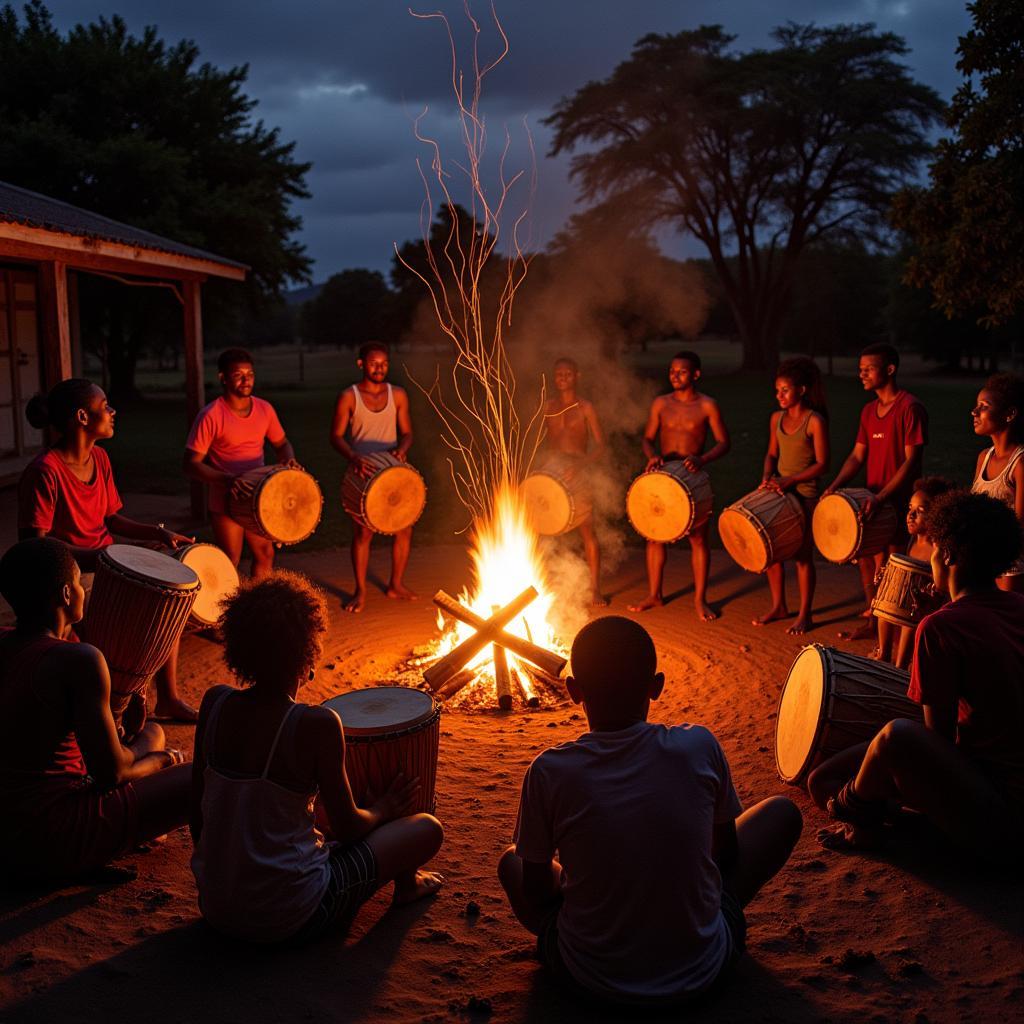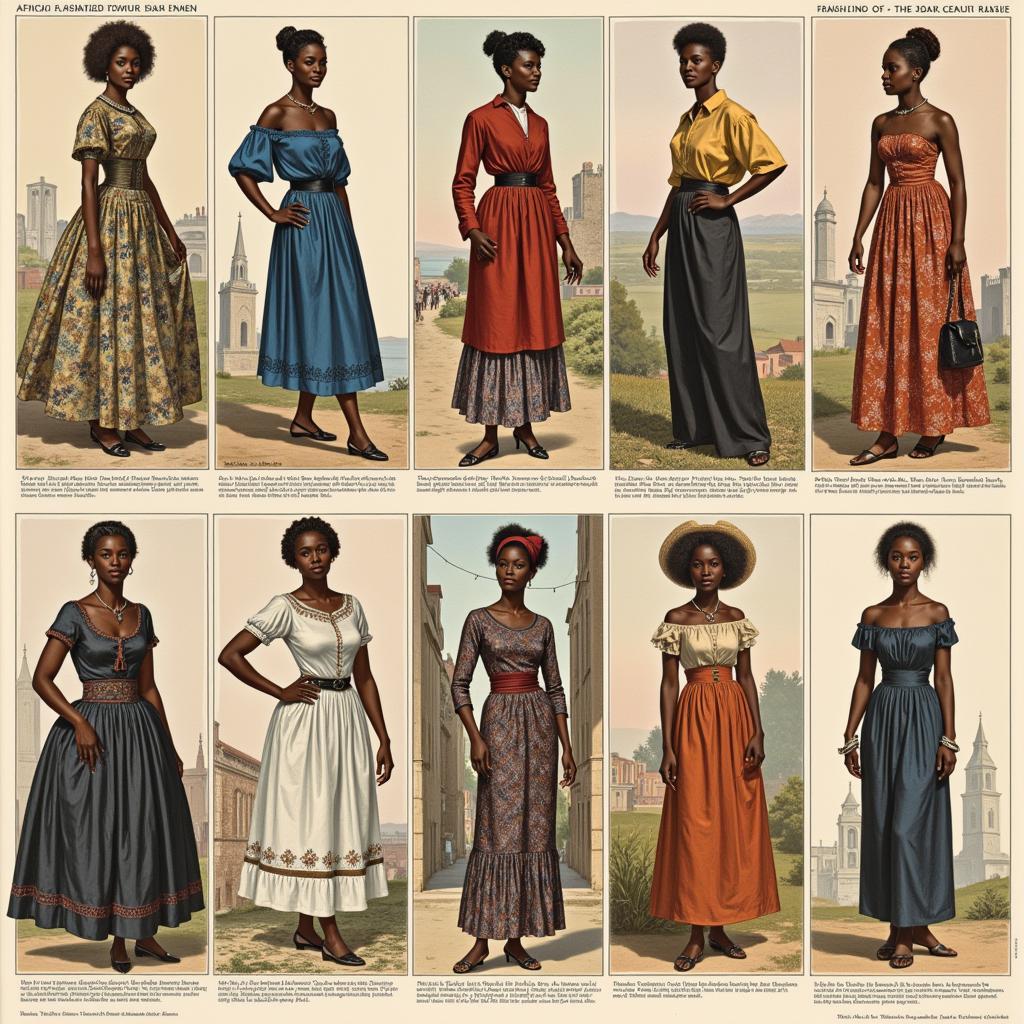African Communities Together: A Tapestry of Shared Heritage and Unity
African communities have always been intertwined, sharing a rich tapestry of history, culture, and traditions. From the bustling cities to the remote villages, a spirit of unity and collective identity binds the people of this diverse continent. This deep-rooted connection stems from shared experiences, common values, and a profound respect for ancestral heritage.
The Power of Shared Heritage
Africa’s history is a testament to the enduring power of community. From the ancient empires of Egypt and Mali to the vibrant kingdoms of Benin and Zimbabwe, communities have come together to build thriving civilizations. These shared experiences have shaped the continent’s cultural landscape, leaving an indelible mark on its art, music, and storytelling.
Throughout history, African communities have faced numerous challenges, from colonialism and slavery to poverty and conflict. Yet, in the face of adversity, they have consistently demonstrated their resilience, drawing strength from their shared heritage and unwavering support for one another. The spirit of “Ubuntu,” a Nguni Bantu term that translates to “humanity towards others,” encapsulates this deep sense of interconnectedness and shared responsibility.
Unity in Diversity: Celebrating Cultural Richness
Africa is a continent of extraordinary diversity, with over 50 countries, 2,000 languages, and a myriad of ethnic groups, religions, and traditions. This rich tapestry of cultures is a source of immense pride and strength, contributing to the continent’s unique identity. From the vibrant textiles of West Africa to the intricate beadwork of East Africa, each region boasts its own distinctive artistic expressions, culinary traditions, and musical styles.
Despite these differences, there is a fundamental unity that binds African Communities Together. This unity is rooted in a shared humanity, a common history, and a collective aspiration for a better future. Festivals and celebrations provide opportunities for people from different communities to come together, exchange ideas, and celebrate their shared heritage. Events like the Pan-African Cultural Festival (FESTAF) showcase the continent’s artistic diversity and promote cultural exchange and understanding.
The Role of Traditional Institutions in Fostering Unity
Traditional institutions play a vital role in maintaining social cohesion and promoting unity within African communities. Elders, chiefs, and religious leaders are respected figures who hold significant authority and influence. They act as mediators, conflict resolvers, and custodians of traditional knowledge and values. These institutions provide a framework for governance, dispute resolution, and community development, ensuring the well-being of all members.
Moreover, traditional practices such as communal farming, shared labor, and collective decision-making promote cooperation and solidarity. These practices reinforce the importance of working together for the common good and ensure that resources are distributed equitably.
Challenges to Unity in Contemporary Africa
While African communities have a long history of unity and cooperation, they face numerous challenges in the contemporary world. Globalization, urbanization, and the rise of individualism have eroded traditional values and weakened social bonds. Ethnic conflicts, political instability, and economic disparities continue to divide communities and undermine peace and development.
Furthermore, the legacy of colonialism and neo-colonialism has left its mark on the continent, creating artificial borders and exacerbating ethnic tensions. The scramble for resources, often fueled by external interests, has led to conflict and instability in many parts of Africa.
Looking Ahead: Strengthening Bonds of Unity
Despite these challenges, there is a growing recognition of the importance of unity and cooperation in addressing the continent’s challenges and achieving its full potential. Pan-Africanism, a movement that advocates for the unity and solidarity of African people, is gaining momentum. Organizations like the African Union (AU) are working to promote regional integration, economic development, and peace and security.
At the grassroots level, communities are coming together to address shared challenges such as poverty, climate change, and access to education and healthcare. Civil society organizations, faith-based groups, and youth movements are playing a crucial role in promoting dialogue, reconciliation, and community development.
Conclusion
African communities together represent a powerful force for change and progress. Their shared heritage, cultural richness, and unwavering spirit of unity provide a strong foundation for building a brighter future. By embracing their diversity, strengthening traditional institutions, and addressing the challenges they face, African communities can continue to thrive and make a meaningful contribution to the world.
Expert Insights:
- Akinyi Ochieng, Cultural Anthropologist: “The strength of African communities lies in their ability to draw on their rich cultural heritage to overcome adversity and build a sense of shared identity.”
- Kwame Nkrumah, Pan-Africanist Leader: “Our objective is African union, so we must move together, and work together to achieve it.”
In a world that is increasingly interconnected, the story of African communities together is a testament to the enduring power of human connection and the importance of collective action in achieving shared goals.
Need help understanding the dynamics of African communities or exploring collaboration opportunities?
Contact us:
Phone: +255768904061
Email: [email protected]
Address: Mbarali DC Mawindi, Kangaga, Tanzania.
We have a 24/7 customer service team ready to assist you.


